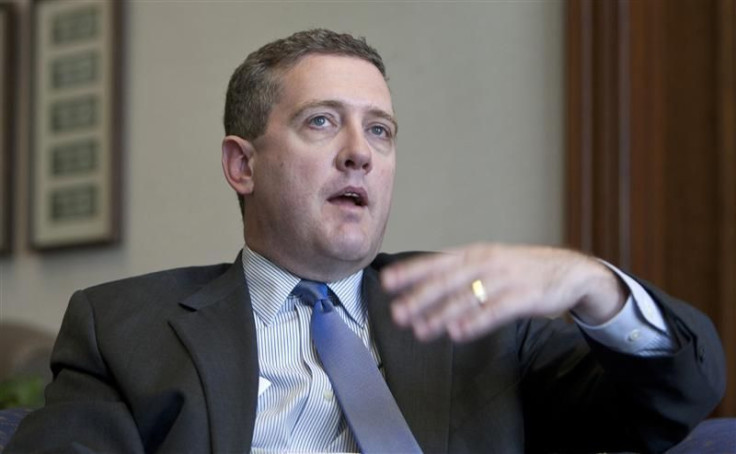Fed Reserve Branch Chief Warns of 'Looming Disaster'

The president of the Federal Reserve Bank of St. Louis warned Monday against the U.S. central bank's policy of keeping interest rates low well into 2014.
James Bullard, speaking to the Union League Club of Chicago, criticized the widely held view that the nation's economy is facing an output gap that keeps it from appropriate production and employment levels.
If we continue using this interpretation of events, it may be very difficult for the U.S. to ever move off of the zero lower bound on nominal interest rates, Bullard said, according to a transcript of prepared comments. This could be a looming disaster for the United States.
He said he believes a better interpretation of the behavior of U.S. real GDP over the last five years may be that the economy was disrupted by a permanent, one-time shock to wealth and it is therefore ill advised to benchmark economic indicators against 2007 levels.
Hawks Set to Soar
Fed watchers consider Bullard, currently a non-voting member of the committee that sets interest rates, to be among the more hawkish of U.S. central bank economists. That is, he is particularly concerned about inflation and, thus, increasingly critical of the Fed's expansionary monetary policies, including its policy of near-zero interest rates and the possibility the central bank may buy more bonds to help keep interest rates down.
Bullard has several allies. Last week, Philadelphia Fed President Charles Plosser, who is a non-voting member of the Federal Open Market Committee, suggested the central bank's we've got to do more attitude was unwarranted. Also, Richmond Federal Reserve Bank President Jeffrey Lacker, who was the lone dissenting vote in the FOMC's latest interest-rate action, publicly aired his dissenting views. Dallas Fed President Richard Fisher is similarly minded.
The views of these economists were boosted at the end of last week, when leading economic indicators related to manufacturing, employment and consumer sentiment all showed the U.S. economy was doing better than expected in January.
Not all Bullard's comments were critical of his central banker peers.
The economist began his speech by praising the Fed's new policy of explicit but flexible inflation targeting, comparing it favorably to the actions of the Federal Reserve during the 1970s. The Fed has recently said it will act with the expectation that core inflation should not rise much more than 2 percent.
Bullard said this decision will serve the nation well for years to come.
© Copyright IBTimes 2024. All rights reserved.



















